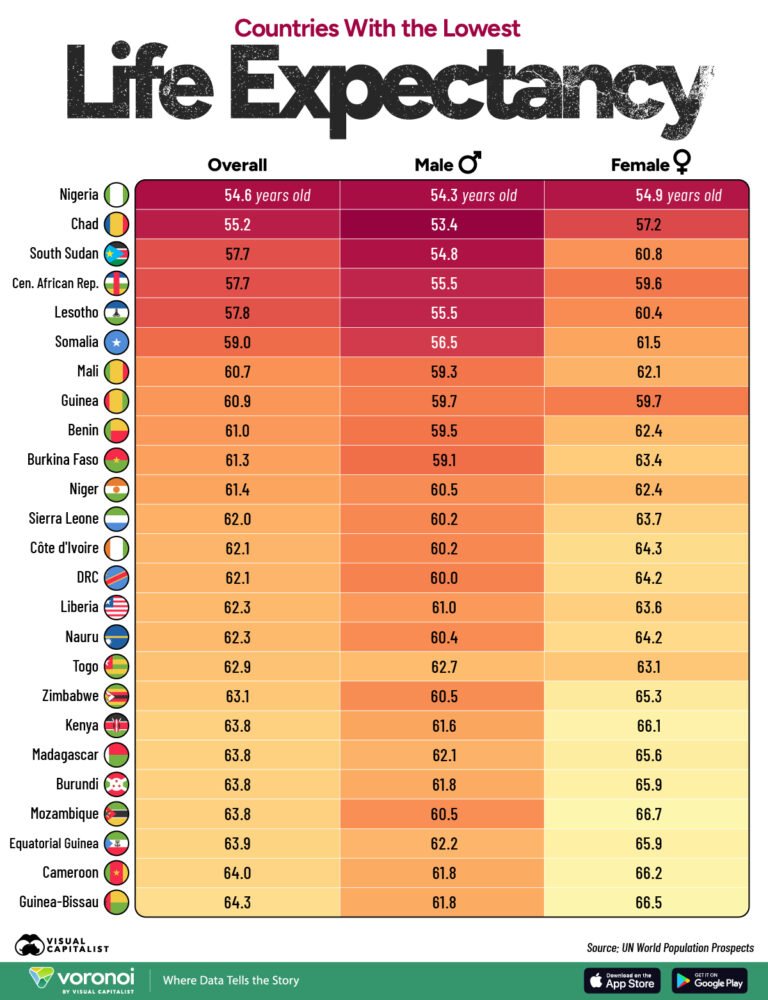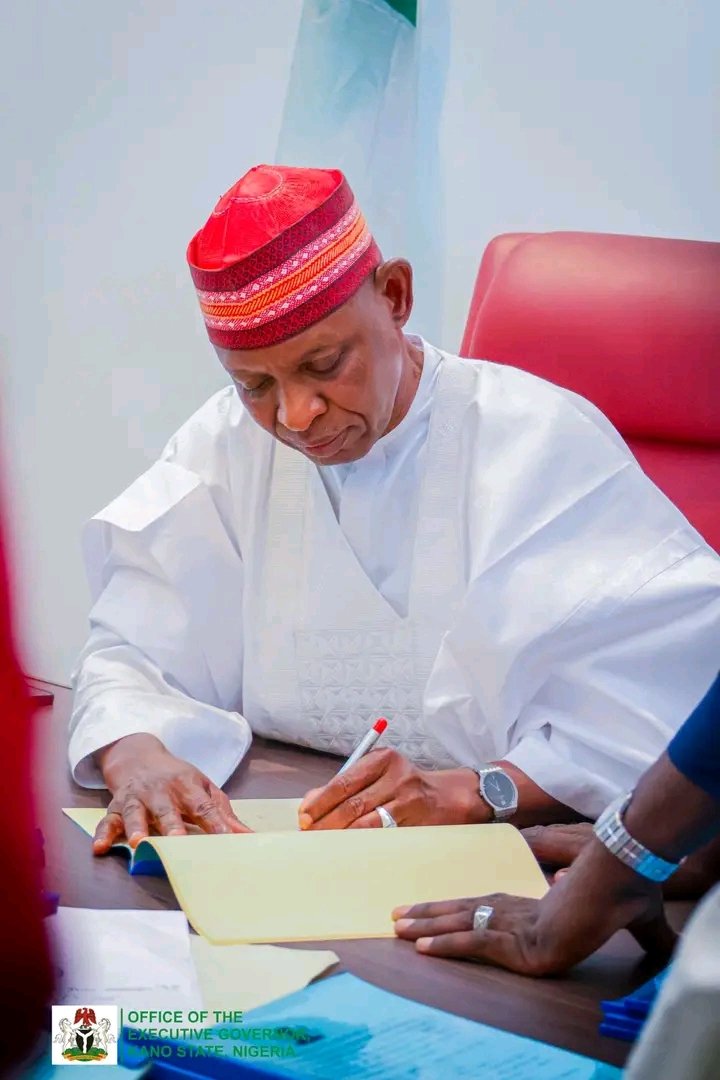Korede Abdullah in Lagos
Experts have slammed Nigeria’s health system collapse and infrastructure deficit following the nation’s low score in global life expectancy.
The latest ranking conducted by an international rate organisation presents a grim performance by Nigeria – Giant of Africa reporting abysmally.
Nigeria holds a record of having the lowest life expectancy in the world, according to a new chart from Visual Capitalist based on the UN’s 2024 World Population Prospects.
Averaging just 54.6 years—54.3 for men and 54.9 for women—Nigeria trails even behind conflict-ridden countries like Chad, South Sudan, and the Central African Republic. The figures highlight a national crisis rooted in health infrastructure collapse, poverty, and systemic policy failure.
“Even in urban areas, many hospitals lack basic equipment, essential drugs, or trained personnel, leaving patients at the mercy of overcrowded wards and out-of-pocket expenses,” lamented a public health expert and UNICEF consultant, Dr. Charles Adeyemo, while speaking with Africa Health Report, AHR.
He added that the combination of corruption, brain drain, and chronic underfunding has created a deadly public health environment. Less than 5% of Nigerians have health insurance, while national health spending hovers around just 4% of the budget—well below the WHO’s 15% recommendation.
Despite being Africa’s fourth-largest economy, Nigeria’s oil wealth has failed to improve basic living conditions. “Nigeria is a textbook case of how GDP growth can mask worsening human conditions,” said a development economist, Dr. Oluwatosin Yusuf, who voiced his reaction when AHR sought his reaction.
Ongoing insecurity, especially in the northeast, has also crippled maternal care and disease control, contributing further to the country’s health decline.
Experts argue that the crisis is solvable if political will aligns with strategic investment. “Political will and smart partnerships with international agencies have helped many African nations outperform Nigeria,” said a UNICEF health consultant in West Africa, Dr. Marie Gaye.
With neighbouring countries making gains through better-targeted health investments and reforms, Nigeria faces a critical choice: act now or continue on a path of worsening human development.



